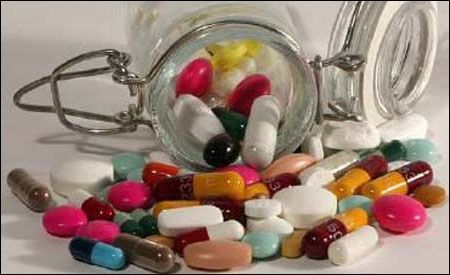 | « Back to article | Print this article |
An International Policy Network report in 2010 found that seven per cent of drugs bought from wholesale traders were substandard, and 3.6 per cent of the drugs from traders contained no active ingredient whatsoever, says Bhupesh Bhandari.
 Dinesh Thakur, the whistleblower whose intervention led Ranbaxy to admit that it had falsified data while seeking the approval of the United States Food and Drug Administration, and pay penalty of $500 million to close the case, has taken the Indian drug regulators to court, accusing them of failing to enforce drug safety rules.
Dinesh Thakur, the whistleblower whose intervention led Ranbaxy to admit that it had falsified data while seeking the approval of the United States Food and Drug Administration, and pay penalty of $500 million to close the case, has taken the Indian drug regulators to court, accusing them of failing to enforce drug safety rules.
Mr Thakur spent much of 2015 to file more than 100 public information requests on how the central and state authorities had responded to cases where the rules had been broken.
The responses showed that they had not adequately investigated the issues, which made him take the health ministry, Drugs Consultative Committee and Central Drugs Standard Control Organisation to the Supreme Court.
The matter is listed for Friday on the Supreme Court cause list.
The suit would not result in penalties but clear the way for a framework for recalls and a commission to enquire improper approvals.
More interesting was the response by a senior Central Drugs Standard Control Organisation officer who said that whistleblowers were welcome but their “intentions should be genuine and nationalistic”.
There was nothing left to the imagination; this was not yet another attempt to deflect a charge by using a highly emotive issue.
If you talk to Indian drug makers, they will privately agree with this view and insist it is a ploy to harm the prospects of India-made generic medicine in the world market.
It cannot be denied that the Indian pharmaceutical industry has caused much heartburn to Big Pharma with its inexpensive medicine and has had to face roadblocks in the past.
It also cannot be denied that perceptions are vital in the pharmaceutical business.
Any untoward observation can hurt. After the Ranbaxy controversy broke out, Mumbai’s Jaslok Hospital had asked its doctors not to prescribe medicine made by the company to its patients.
Apollo Pharmacy suspended procurement from Ranbaxy. Then the government had to intervene and come out with a statement that it considered all medicine made by Ranbaxy, and others, perfectly safe for consumption.
Apart from the potential damage to perception, the industry is worried that Mr Thakur’s activism may go the clinical trial way, where NGOs took the matter to the courts, resulting in no approvals from the government for a period of three years.
Indeed, the issue that Mr Thakur is trying to highlight is fairly well known: there are substandard and spurious drugs out in the market, thanks to inadequate regulation.
An International Policy Network report in 2010 found that seven per cent of drugs bought from wholesale traders were substandard, and 3.6 per cent of the drugs from traders contained no active ingredient whatsoever.
Some of the spurious drugs contained chalk or talcum powder mixed with a pain reliever to trick and defraud the patient.
As many as 92 per cent of pharmacists said they have been offered substandard or spurious drugs for cheaper prices.
None of this would have been possible if the regulators had been strict.
This systemic rot is well known and well documented. Mr Thakur himself had talked about the inadequacy of Indian regulation, vis-à-vis the US, in a blog in July 2013.
“The frequency of reporting adverse events in India is significantly lower compared to the US,” he wrote. He had also busted the myth that the Indian drug makers are in sync with the US FDA.
“According to the Drug Controller General of India,” he wrote, “there are 169 manufacturing facilities approved by US FDA, 160 by European regulators and approximately 1,300 by the World Health Organization. Overall, the DCGI estimates there to be 8,000 units across the country. Industry estimates put that number at as high as 20,000.”
None of the industry’s apprehensions takes away the need for tighter regulation - the point that Mr Thakur wants to make.
To be fair, some steps have been taken in that direction, and notifications and guidelines to reduce personal contact have been issued. But a long distance still needs to be covered.
Unfortunately, resistance comes from the politically strong small-scale lobby which is not in favour of tighter regulation for obvious reasons.
The Indian drug industry has a long tail - a few big players are followed by a very large number of mid-scale and small players.
They have ensured that there is never enough political support for better regulation.
Resistance also comes from the states. At the moment, both the Centre and the states approve drugs.
For effective control, there has to be a unified approver. But the states are unwilling to give up this power.
There has been some reform here and some products have been reserved for the centre, but this is a fight that will take long to resolve.
There is also merit in the industry’s suggestion that India should join the Pharmaceutical Inspection Convention, based in Switzerland, which will help the country upgrade its regulatory processes.